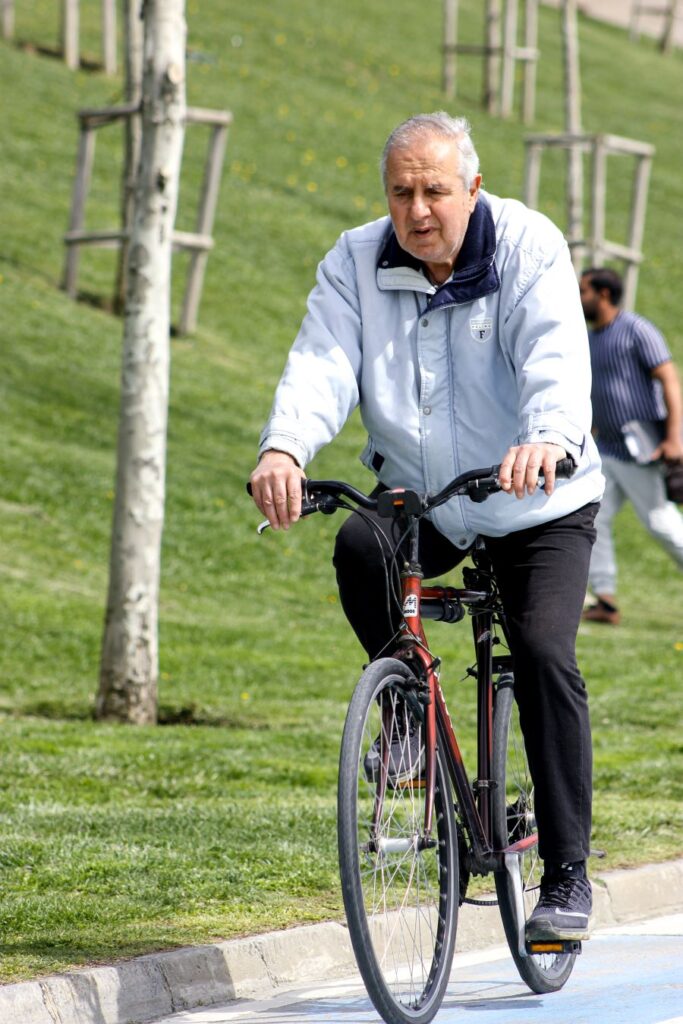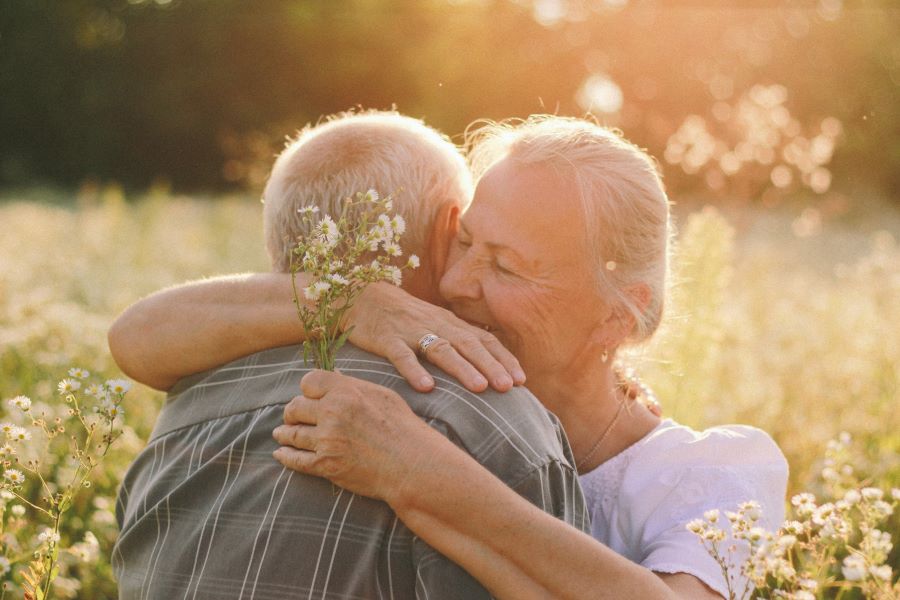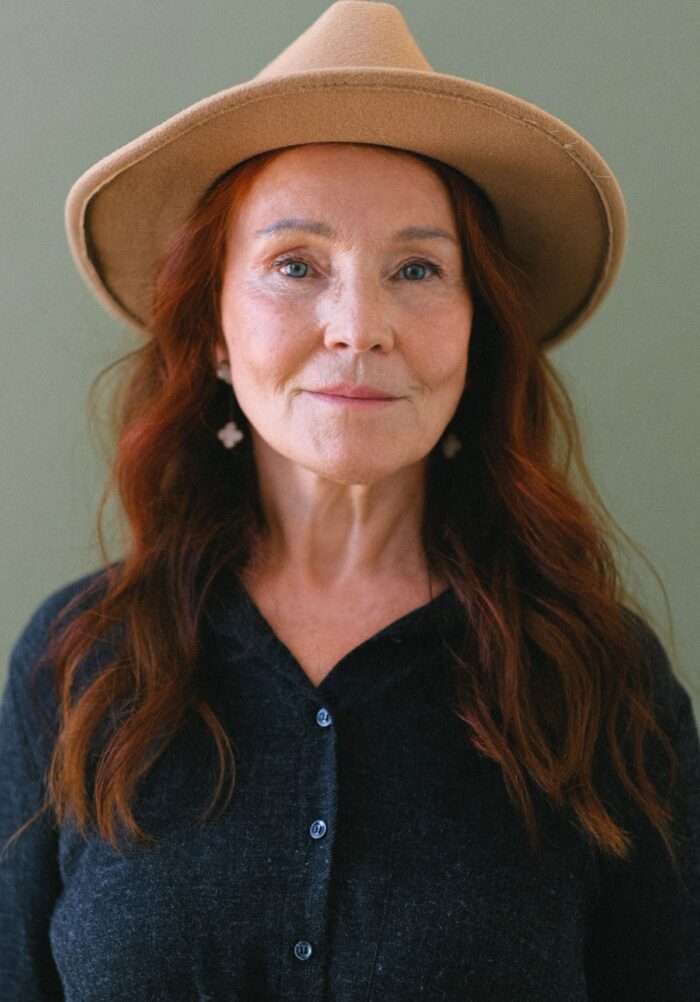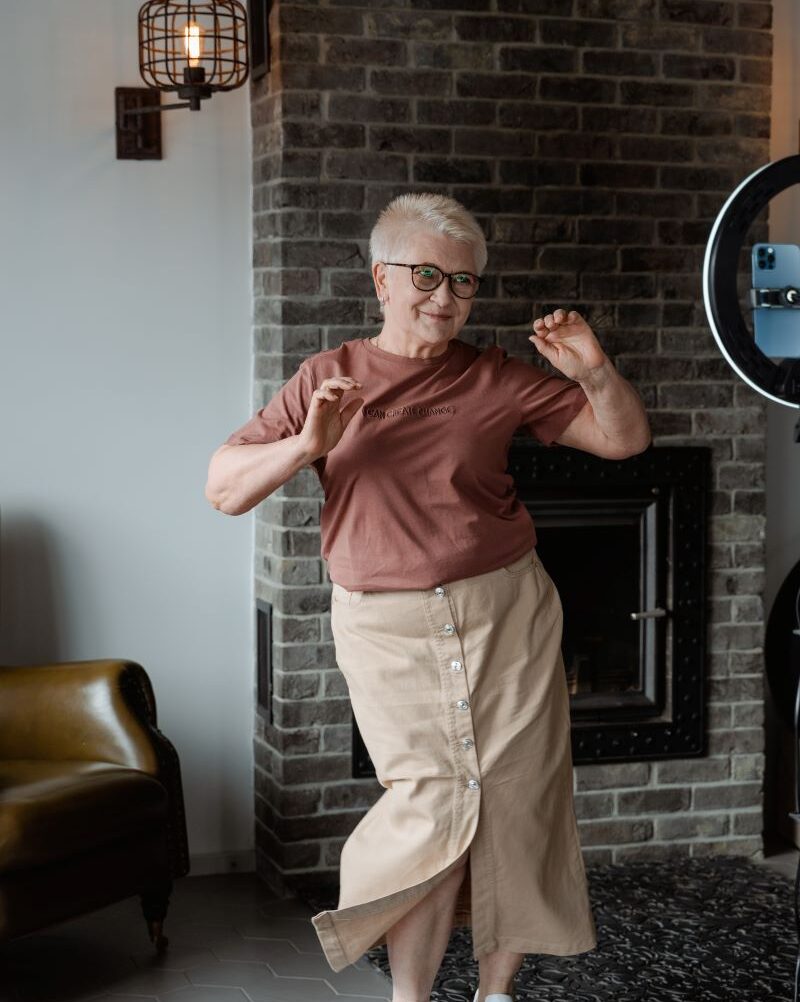
The first time I was given a discount due to being a “senior citizen” (and I was in my 50s), I was offended. I mean, I don’t look or act “that old” … do I?
And then, recently, I was innocently asked by a high schooler about what age is considered elderly, because she was writing a paper on growing old.
The query made me think about aging, because in a world that constantly seeks to define and categorize individuals based on their age, the question of what age is considered elderly remains a perplexing one. And, is being categorized as elderly different than becoming a senior citizen, and if so, how? Is it when you receive your first AARP card in the mail?
Or perhaps when you start noticing those pesky gray hairs sprouting like weeds or notice that your hair is thinning, or even, disappearing? Is it when you’ve moved to an assisted living facility or no longer work?
While there’s no doubt that eternal youth doesn’t exist, as much as we might like for it to, the reality is that our bodies inevitably undergo changes as we become older. That much we can accept. But, is the path going from adulthood to middle aged to senior citizen to …. gasp, elderly? And, do we have to accept what age is considered elderly at all?
Maybe, instead, we don’t let those definitions define us. We can instead choose to challenge the conventional notions of what it means to be “old.”
One thing is for sure, as a person in my early 60s, I don’t think of myself as elderly, or even as a senior citizen for that matter. But, I do realize that I have passed society’s standard of what it is to be middle aged. I feel like I—as well as my like-aged friends—aren’t quite sure what category we fit into, and the thought of being somewhere in the nebula is more than a bit unsettling.
Re-Defining the Concept of What Age is Considered Elderly
Defining the concept of what age is considered elderly is not as straightforward as it may seem. Traditionally, a person’s physical age has been the main criterion to determine who falls into this category. However, our understanding of what it means to be elderly has evolved over time.
Age alone cannot accurately capture the complexities and experiences that come with aging. Instead, a multidimensional approach is necessary to truly define this concept.
 Physical health plays a vital role in determining whether someone can be considered elderly. The decline in physical abilities often associated with old age can impact one’s daily activities and overall well-being.
Physical health plays a vital role in determining whether someone can be considered elderly. The decline in physical abilities often associated with old age can impact one’s daily activities and overall well-being.
Yet, focusing solely on physical health disregards other significant factors such as mental and emotional well-being, social connections, and life experiences—all of which contribute to individuals’ perception of their own aging process.
Additionally, cultural perceptions also shape how we define the elderly population. Different societies have varying expectations and stereotypes regarding age-related roles and responsibilities.
In some cultures, wisdom and experience are highly valued attributes associated with being elderly; while in others, age may be seen more negatively as a sign of decline or becoming outdated.
In current terms, defining what age is considered elderly requires society to move beyond simple numerical criteria like years lived on Earth. It necessitates an understanding of an individual’s overall health—both physical and psychological—along with an appreciation for cultural variations across societies worldwide.
By embracing a multidimensional approach, we can gain insight into the diverse experiences of older adults and break free from limiting stereotypes surrounding aging. This is one of many reasons why the questions of what age is considered elderly doesn’t really matter.
Cultural Factors Influencing Perceptions of Age
Cultural factors play a significant role in shaping our perceptions of age. Different societies and cultures have varying perspectives on what is considered elderly.
For instance, in some Eastern cultures, older individuals are revered and respected for their wisdom and life experience. In contrast, Western societies often place more value on youth and perceive aging as something to be avoided or even feared.
Religion also plays a part in shaping cultural perceptions of age. Some religions view old age as a time for spiritual growth and reflection, while others may associate it with spiritual decline or loss of vitality.
These beliefs can influence how individuals within different cultures perceive their own aging process and the elderly population as a whole.
Moreover, cultural norms regarding family structures and dynamics also impact perceptions of age. In collectivist societies such as many Asian cultures, the elderly are often seen as vital members of the family unit, with responsibilities ranging from providing guidance to taking care of younger generations.
This contrasts with individualistic Western societies where there is often more emphasis on independence and self-reliance.
Understanding these cultural factors is essential when discussing what age is considered elderly because it highlights the subjectivity of this concept. Age cannot be solely defined by physical markers or biological processes; rather, it is deeply intertwined with cultural values, beliefs, and attitudes toward aging itself.
Open dialogue about these influences can help challenge societal stereotypes surrounding old age and promote intercultural understanding within our increasingly diverse communities
Biology and Health Matter When Determining What Age is Considered Elderly
Biological markers are crucial in determining an individual’s overall health, especially as they age. These markers include various physical and chemical indicators found within the body that can aid in assessing the risk of chronic diseases or conditions.
Some common biological markers used to gauge health considerations include blood pressure, cholesterol levels, body mass index (BMI), and blood glucose levels.
However, it is important to note that these markers aren’t definitive indicators of a person’s health status. Instead, they serve as metrics that can give healthcare professionals essential information about potential risks and provide insight into preventive measures or treatment options.
For instance, high blood pressure may signify a risk for cardiovascular disease but doesn’t necessarily mean an individual has already developed it. Being overweight is another one.
Biological markers should be interpreted in conjunction with other factors such as lifestyle choices, family medical history, and additional diagnostic tests to paint a more comprehensive picture of one’s health when determining what age is considered elderly.
As we explore the question of what age is considered elderly, it becomes apparent that relying solely on chronological age might not be sufficient when considering one’s overall well-being. While chronological aging refers to the number of years an individual has lived since birth, biological aging focuses on how well the body functions and adapts over time.
This distinction emphasizes the importance of taking into account an individual’s physiological state rather than simply labeling them based on their date of birth.
By looking at both biochemical aging (biological changes at a cellular level) and functional aging (physical changes experienced by individuals), researchers have started to recognize that people don’t age in the same ways. Based on that, the question of what age is considered elderly doesn’t really have an answer that can be answered for everyone.
Implications and Expectations in Exploring What Age is Considered Elderly
The social implications and societal expectations placed on individuals as they age are profound. In many cultures, the concept of elderly is defined by physical decline or retirement age, which often leads to negative stereotypes and marginalization.
This can perpetuate the belief that older people are no longer valuable contributors to society and should simply fade into the background.
However, it’s important to recognize that aging is a natural process that does not diminish one’s worth or abilities.
Societal expectations play a significant role in how individuals perceive themselves as they grow older. The pressure to conform to certain standards of productivity and appearance can be overwhelming, leading many older adults to feel invisible or ignored.
By challenging these expectations and embracing a more inclusive view of aging, we have the opportunity to redefine what it means to be elderly.
It is time for society as a whole to recognize the wisdom, experience, and potential that older individuals bring, rather than limiting them based on outdated assumptions.
In shifting our perspective on what age is considered elderly, we can create a more compassionate and supportive environment for people at all stages of life. This involves breaking down stereotypes about aging and recognizing that each person’s journey is unique.
By celebrating diversity within our aging population, we not only empower individuals but also enrich our communities with their knowledge and experiences.
It is crucial for us all to reevaluate our own biases towards age so we can collectively build an inclusive society where everyone feels valued regardless of their chronological years.
Psychological Factors and Mental Well-Being As Age Influencers
Psychological factors play a crucial role in determining our mental well-being, regardless of age. As we grow older, these factors become even more pronounced and can have a significant impact on our overall quality of life. One such factor is social isolation, which often becomes common among elderly individuals.
Loneliness and limited social interactions can lead to feelings of depression and anxiety, ultimately affecting mental health.
Engaging in regular social activities, maintaining strong relationships with loved ones, and participating in community programs can help combat these negative effects.
Another important psychological factor that contributes to mental well-being is the ability to adapt to change. Aging brings about numerous lifestyle changes—from retirement to declining physical abilities—and being able to cope with these changes is essential for maintaining positive mental health.
Those who embrace new challenges and find purpose beyond their previous roles are more likely to experience better psychological well-being as they age.
Additionally, having a sense of control over one’s own life choices and being proactive about one’s health can go a long way in promoting mental wellness and choosing to age gracefully among the elderly population.
Understanding the psychological factors that influence mental well-being in later life is crucial for addressing the needs of the elderly population effectively.
Fostering strong social connections and actively adapting to life changes are both vital for maintaining positive mental health throughout the aging process. By prioritizing psychological well-being alongside physical health concerns, society can help ensure that individuals can enjoy fulfilling lives regardless of their age or stage in life. And that means the question of what age is considered elderly isn’t really relevant any longer.
The Evolving Definition of Old Age
As our society continues to progress and change, so too does our definition of old age. It is no longer defined solely by an arbitrary number, but rather by a multitude of factors that contribute to one’s overall well-being.
 Physical health, mental acuity, and social engagement now play a significant role in determining how we view old age.
Physical health, mental acuity, and social engagement now play a significant role in determining how we view old age.
One of the key shifts in our understanding of old age is the emphasis on active aging. Gone are the days when reaching a certain age meant retiring and withdrawing from society. Instead, older adults are increasingly encouraged to stay physically fit, mentally stimulated, and socially connected for as long as possible.
This new focus on active aging recognizes that age should not limit one’s potential for growth and fulfillment.
Furthermore, advances in healthcare have also contributed to a redefinition of old age. With better access to medical services and improved treatments for various ailments, people are living longer than ever before.
This has led to a shift in societal expectations around what it means to be old. Rather than simply marking the end of life, old age is now seen as another stage filled with opportunities for personal development and continued contribution to society.
Lucky for those of us entering our senior years, the definition of old age has evolved beyond a fixed numerical value. It now encompasses factors such as physical health, mental well-being, and social engagement.
Active aging has become paramount as older adults strive to remain vital members of their communities.
With advancements in healthcare allowing people to live longer lives filled with possibilities, old age is no longer synonymous with being feeble or unable to contribute to society any longer.
A Nuanced Understanding of Aging
It is evident that the concept of aging cannot simply be confined to a certain numerical value. Age is more than just a number; it encompasses a wide range of physical, mental, and emotional changes that occur throughout an individual’s life.
Therefore, we must strive for a nuanced understanding of aging that goes beyond societal stereotypes and acknowledges the unique experiences and needs of each individual.
With advances in healthcare and technology, people are living longer and healthier lives than ever before. This calls into question traditional definitions of what it means to be elderly.
Instead of relying solely on chronology to determine old age, we should consider factors such as lifestyle choices, genetics, and overall well-being.
Aging should not be seen as a decline but rather as an opportunity for growth, learning, and continued contribution to society.
It is essential to recognize the diversity within the aging population. Not all older adults experience the same physical or cognitive decline at the same rate or extent. Some individuals may remain active and independent well into their 80s or 90s while others may require assistance earlier in life due to various health conditions.
By embracing this nuanced understanding of aging, we can promote inclusivity and ensure that individuals are given appropriate support and resources based on their unique circumstances.
Overall, our perception of aging needs to evolve from one-dimensional notions towards a more comprehensive understanding that accounts for individual differences and celebrates the many possibilities that come with growing older.
It is only by doing so that we can fully appreciate the richness and diversity.
For now, my husband Rick and I go about our ambiguous category of life’s stage, where he still works full-time but dreams of retirement, and I have begun a new journey of adding the role of content creator to my journalistic career. We work hard, live fully, travel, and plan our adventures.
We’re confident and comfortable in our skin of being shoulder baby boomers (born in early 1960s), and aren’t ready to define ourselves as seniors or elderly anytime soon.
And, when we become “senior citizens” or “elderly” by our own personal definitions, we’ll both embrace it. Or, at least, that’s what I tell myself!
More from Senior Denial About Healthy Living
Here are some more articles about healthy living you might enjoy. Check them out:
- Is 65 the Magic Number for Being a Senior Citizen?
- Depression and the Elderly: The Hidden Struggle of Feeling Down
- Walking for Mental Health: Strolling Along to Better Wellness
- The Hidden Culprits Behind Stubborn Belly Fatin Seniors
- The Art of Aging Gracefully: Simple Secrets Revealed
- Debunking 11 Tired Stereotypes About Aging
- Costs for Health Insurance Coverageto Skyrocket
- Should You Get the Latest COVID-19 Vaccine?
Written by
Robin McClure
Robin is the author of 7 parenting books and has 3 grown children, 3 spoiled rescue dogs, and a very understanding husband. She holds a bachelor's degree in journalism and a master's degree in communications, and spends her time writing, drinking coffee, and planning the next grand adventure.



